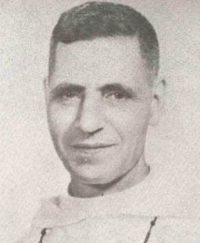The military authorities refuse to give out any information regarding the names and fate of the prisoners, most of whom are concentrated at Camp O’Donnell in Tarlac. Likewise, there is meager news about the prisoners of Bataan.
Many families are getting desperate about the whereabouts of their relatives, if they are not yet dead, that is. Malaria is rampant, and it is said that on the average, about 15 Americans and 30 Filipinos die of it daily.
Nine medical professors of Santo Tomas, some of whom had sons among the prisoners, and a good number of medical students, offered to attend to the sick prisoners. However, the Japanese did not accept them, saying that this would discredit their medical corps as being incapable of attending to the war victims.
I talked with some of the fighting men. Their accounts do not tally, as they each talked about events according to their respective experiences. Consequently, it is difficult to form an exact picture of the state of the Fil-American forces before the attack, during the surrender and after the fall. It seems that when the forces yielded, many of the soldiers who had been receiving good salaries during the war—something like ₱40.00 a month for soldiers—lost everything they had. Other soldiers had nothing to surrender except their arms.
A pre-war medical professor at the UST informed me that among the Bataan fighters, there are more of them afflicted with malaria and dysentery than those wounded in battle. The latter are relatively small in number, especially when compared to the casualties on the side of the Japanese. In Tarlac where he was imprisoned for two months, the Filipino captives are dying of despair, hunger and sickness. The Japanese lose no opportunity to humiliate and insult the Americans and the Filipinos who demonstrate any sign of loyalty to the Americans.
A dispatch from Domei stated that the number of prisoners has reached 62,600, 10,600 of whom are Americans. It added that 2,600 of these Americans are confined in military hospitals.
There are rumors that tomorrow, Emperor’s Day, there would be a grand military parade which will also be in commemoration of the fall of Bataan. However, no official announcement has yet been made to that effect.
Vargas ordered the hoisting of the Japanese flag in all public buildings and appealed to private individuals to do the same in their respective houses. He also prohibited the use of the Philippine flag, on advice of the High Command.
The people are uncertain and reluctant to carry out these directives. On the one hand, they fear being branded as collaborators. On the other hand, they fear the Japanese. If the administration would put more pressure, there would expectedly be many houses displaying the Japanese flag.
